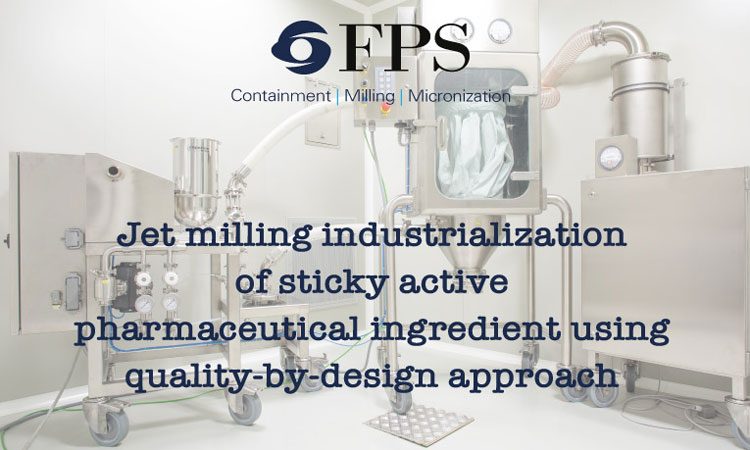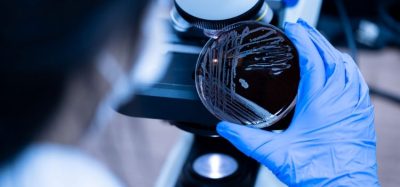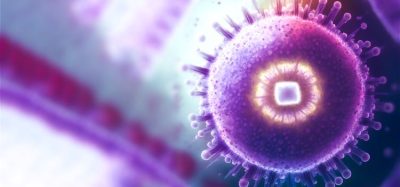Jet milling industrialisation of sticky active pharmaceutical ingredient using quality-by-design approach
Posted: 19 July 2019 | FPS Food and Pharma Systems | No comments yet
FPS has recently cooperated with pharmaceutical industry experts in research on jet mills’ practices in pharmaceutical industries.


FPS sincerely believes in sharing and constant improvement, at all levels. For this reason, FPS’ President, Eng. Gianola, and the Vice President, Mr Corsini (both experts in milling and micronisation technologies) have worked together with M Nakach PhD (Head of Formulation and Process Development, Biologic Drug Product Development of Sanofi) in a new study.
Jet mills are particularly useful in the pharmaceutical industry where micronisation is used to raise drug activity by increasing particle specific surface or by allowing active substances to reach their site of action by reducing particle size. By increasing the specific surface area (in terms of m2/g) the dissolution rate is improved.
The purpose of the research article was to define a scale-up methodology for sticky Active Pharmaceutical Ingredients (APIs) using Quality by Design (QbD) and a scientific best practices approach. Therefore, a commercial manufacturing process of sticky APIs and its industrialisation has been described.
Particular attention was paid to the cleanability of the system which must be suitable for processing multiple products, avoiding cross-contamination when batch changes are required.
The studies were conducted for sticky Active Pharmaceutical Ingredients on the complete production process that was developed following two industrial Key Performance Indicators (KPIs): high process yield and compliance with Environmental Hygiene and Safety (EHS) regulations.
Finally, an industrial installation was proposed to deliver the product with a high productivity yield, compliant with safety regulation and cleanable in place.
The cooperation with Mr Nakach hasn’t ended, however. In fact, FPS is proud to announce the next edition of a Micronisation Workshop focused on this project, which will be held on 15 October in FPS’ Production Plant (Fiorenzuola d’Arda (PC) Italy), where all the authors will be present and available to discuss the research.
The research was published in the Pharmaceutical Development And Technology Magazine.









